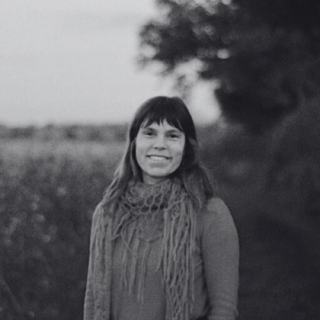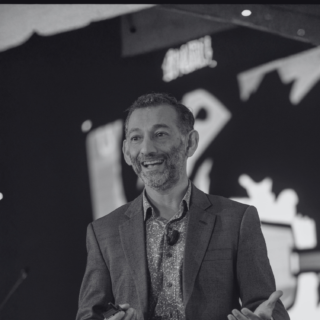The Golden Rule: The Original Operating System
05 Apr
Reboot’s central tenet is our own take on an old maxim, “Treat Others As You would wish to be Treated”. This wisdom is deceptively simple, at first glance almost childishly so. It is first recorded in the writings of Confucius in roughly 200 BCE, and is found thereafter in multiple sources across myriad traditions, both spiritual and secular. It exists in some form across the three main Abrahamic traditions, and also across Hinduism (“Dharma”); Daoism; Ubuntu; and many more.
What has made this simple instruction so persistent? Part of its significance is surely that it embeds and exemplifies the core ‘building block’ of a civilised society; the idea that humankind is a social animal and can only prosper when the idea of looking outside of one’s own immediate gratification is accompanied by an understanding of the needs of another; “love thy neighbour as thyself”; of empathy.
The Golden Rule and the New York Subway
In 2007, Wesley Autrey, while waiting for a train on the New York Subway, witnessed a young man fall from the platform onto the tracks- and into the path of an oncoming train. With no concern for his immediate safety, Wesley leapt from the platform to rescue the young man. With no time to save both himself and the young man, he instead threw himself over him in a drainage trench between the tracks, where he held him down. As the train passed over the two, the axle gently skimmed Wesley’s head. Both men were unhurt.
What compelled Wesley to put himself at risk? For Rockefeller neuroscientist Donald Pfaff (The Altruistic Brain: How We Are Naturally Good), Wesley’s good deed was enacted almost without conscious thought. For Pfaff, altruistic acts of this kind are decided at a primal, atavistic level. When Wesley Autrey jumped in front of the oncoming subway train, he did so unthinkingly. It seems irrational: why would we be hard wired to put ourselves in danger in the face of another’s peril? What could be the evolutionary advantage?
Pfaff suggests that the neurological extension of empathy- where we visualise and identify with another person’s distress and conceive of it as our own- has been part of our evolutionary advantage. The excitement of certain neurons allows us to witness the suffering and endangerment of our peers and link it to our own well-being. This in turn becomes the basis of co-operative evolution, and indeed society itself.
So, the “Golden Rule” is some kind of neurological essential, an innate software which acts as a prerequisite to any flourishing social interaction. For Reboot, this is the original OS.
Kind-Ness & Common Sense
In their 2009 book ‘On KindNess’, Adam Phillips and Barbara Taylor , explore the concept of "kindness", its continuity and recurrence throughout history as something necessary both to our personal happiness and our communal well-being. Implicitly, this recurring quality of kindness is in and of itself a reciprocal display of sympathy- that is, what we have in kind with one another..
In Common Sense, Thomas Paine’s famous tract exhorting the colonial subjects of the New World to break with the British Crown. He does so by an appeal to consider what these new Americans have common with their neighbours, rather than Imperial masters an ocean away. The ‘common’ is here almost a sixth sense which we share in-kind with our fellows
The Golden Rule functions at the level of individual, of community and for Paine, nation. At a planetary level, we can see it exemplified in the idea of the Just Transition.
The Golden Rule and the Just Transition
The concept of “just transition” has been around since the 1980s, but in recent years, the concept has gained traction with reference to meeting climate goals by ensuring the whole of society – all communities, all workers, all social groups – are brought along in the pivot to a net-zero future.
What is important, though, is that each country fosters ongoing dialogue to develop a common vision for what a just transition means for their impacted workers, communities and businesses.
Put simply: at the heart of our climate crisis is a fundamental schism between global north and south, majority and minority. Continued economic growth demands extracting fossil fuels from the poorest part of the world. If we are to inhibit or cease extraction, then we are in effect punishing the poorest- exactly the same communities who are experiencing the worst effects of ecosphere collapse.
A transition to a sustainable vision for the planet is thus one in which the developed economies of the world regard all stakeholders with empathy; that the burden and dividends of systems change is shared equitably; that a regenerative future can only be realised if we understand that we are all potentially at risk as climate refugees; and that climate resilience can only be mutual endeavour.
Reboot’s specific take on the Golden Rule is extended in part to say “Treat others and the planet as we would wish to be treated”. This extension makes an important substantive difference- we extend this principle of reciprocity, beyond just our human relationships, and extends our sense of empathy to nature itself.
By imaging ourselves in a reciprocal, dynamic relationship with the planet, we are changing the terms of contract with the biosphere. Seeing, for example, humanity as being in partnership with the biosphere, with other species, with weather systems; the climate itself.
The Golden Rule and the Sustainable Development Goals
The 17 Sustainable Development Goals (SDGs) were born at the United Nations Conference on Sustainable Development in Rio de Janeiro in 2012. The objective was to produce a set of universal goals that meet the urgent environmental, political and economic challenges facing our planet. Hardwired in the planning goals of business, government and civil society around the world, and ratified by the UN, these goals represent the best recurring technical route map that we have to what a sustainable, equitable planet might look like.
We might then say that the climate crisis is not one of scientific understanding. At this stage in its development, the human race has the profound technical understanding of the natural sciences that it has ever had. Science is doing just fine.
The crisis then is one of values. We are being led to the precipice of climate collapse by an accompanying cultural collapse. Indeed, the latter may precede the former. As Donald Trump knows well, politics is a downriver of culture. This invisible, intangible driver of change, sometimes called SDG Zero, or SDG 18, or the ‘Inner’ SDGs, reflect the ‘ghost in the machine’; the animating principle of a viable, joyous society. What does it look like? For Reboot, this idea of reciprocity- a regenerative relationship with ourselves, with each other, and with the planet- is at the heart of change.
This extension of reciprocity extends to nature in the abstract, and thereby leads us inexorably to questions of faith. Whether the Gaia hypothesis of James Lovelock; or the animism of traditional indigenous peoples around the world; the incessant question of the climate challenge is how do we pick a course through the most complex, terrifying collapse of our age.
What do we do in the middle of a metacrisis, when planetary boundaries are being overrun and we seem powerless in the ‘polycrisis’ of multiple systems collapses?
We do what we do with any crashed system. We Reboot.
Over the next few weeks, Reboot will be looking at each of the 17 Sustainable Development Goals in turn, using the Golden Rule as a lens. The aggregation of planetary crisis threatens to overwhelm us all, and finding a way to change the necessary systems is impossible. Each SDG is complex, technocratic.
Through empathy, kindness and a sense in common, we can pick a path.
By Anthony Bennett
Chief Executive Officer
Exploring SDGs with Anthony
Discover Anthony's series on the 17 Sustainable Development Goals (SDGs), where he explores each goal through Reboot the Future's guiding principle: "Treat Others and the Planet as You Would Wish to be Treated."
Anthony's insightful articles offer jargon-free insights into why the SDGs are essential for our future and how they embody principles of empathy and collaboration.
Read now for inspiration and action!
Drowning By Numbers 💧
Published April 8, 2024


